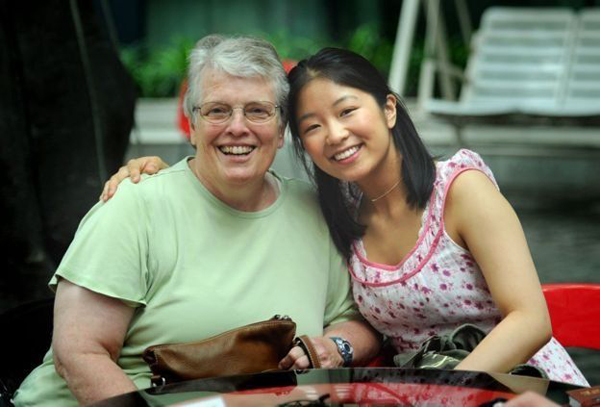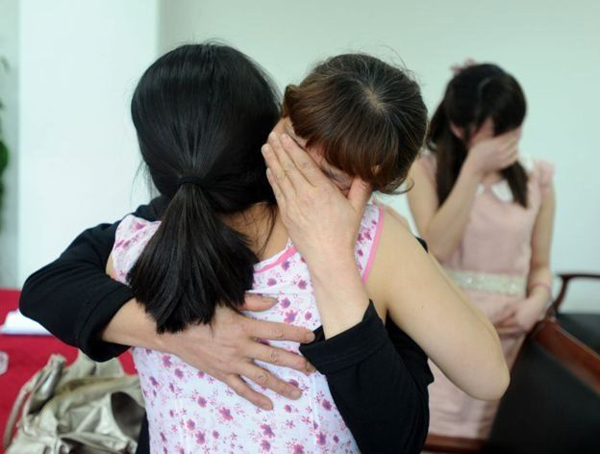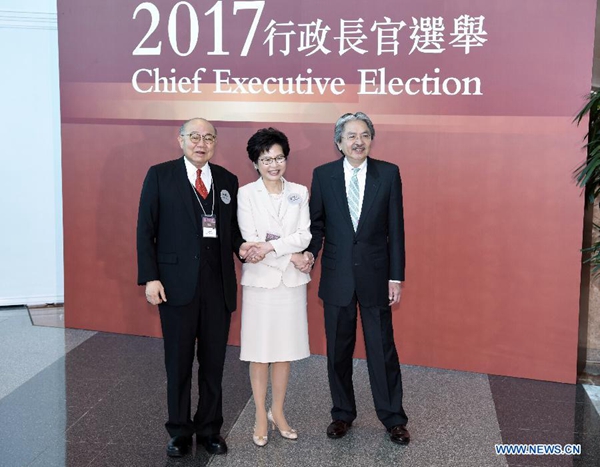Adopted girl searching for birth parents claimed by 50 families
Jenna Cook, a girl of Chinese origin adopted by an American school teacher over 20 years ago, returned to China to look for her birth parents.
|
|
|
Jenna and her adoptive mother, Margaret Cook. [Photo/Sina.com.cn] |
Before her arrival, the Yale student had no idea that her trip in search of her roots would touch so many people in Wuhan city: 50 families came forward in the hope that she might be their abandoned daughter.
Jenna Cook’s story started on March 24, 1992, when she was abandoned as a baby near a bus stop in Wuhan, capital of central China’s Hubei Province.
She was taken to the Wuhan Children’s Welfare House to be cared for.
In June that same year, she was adopted and given the name Jenna Cook by Margaret Cook, a primary schoolteacher who lived in Massachusetts.
Jenna was one of the first 200 Chinese babies to be adopted by American families. About 80,000 children born in China were estimated to have found homes in the United States, mostly girls.
Jenna always knew she was adopted. Living in an area with few Chinese faces around, Jenna’s adoptive mother tried her best to look after the girl and her younger sister, who was also a Chinese adoptee. She learned Mandarin, and all about China, socializing with other families with similar adoption backgrounds.
Despite Margaret’s best efforts to help her two daughters keep a link with their country of origin, Jenna yearned to find her birth parents.
At the age of 20, Jenna was admitted by Yale University, where she received a grant to fund a trip to China to look for her parents as part of an academic study program.
Accompanied by her adoptive mother, Jenna traveled to Wuhan in 2012 and managed to get her story posted in local newspapers. The article aroused huge public interest.
Dozens of families came forward to say that Jenna was their daughter, 50 of whom claimed to have left an infant in the street where Jenna was found in March, 1992.
|
|
|
Jenna Cook puts up a poster containing her story, trying to find her birth parents in Wuhan, capital of central China’s Hubei Province. [Photo/Sina.com.cn] |
During Jenna’s meetings with the 50 families, the girl found them all thoughtful and considerate. Every family treated Jenna as if she were their daughter. They asked Jenna about her life, wanting to know whether she had been well looked-after.
Jenna carried out DNA tests with 37 families, narrowed down from the 50 who’d come forward, but none of them turned to be related to Jenna.
|
|
|
Jenna hugs one of the mothers who came forward to claim her. Sadly DNA tests proved she was not Jenna’s mother. [Photo/Sina.com.cn] |
It’s reported that Jenna has left a sample of her DNA with police in Wuhan, leaving a hope for a possible reunion in the future.



